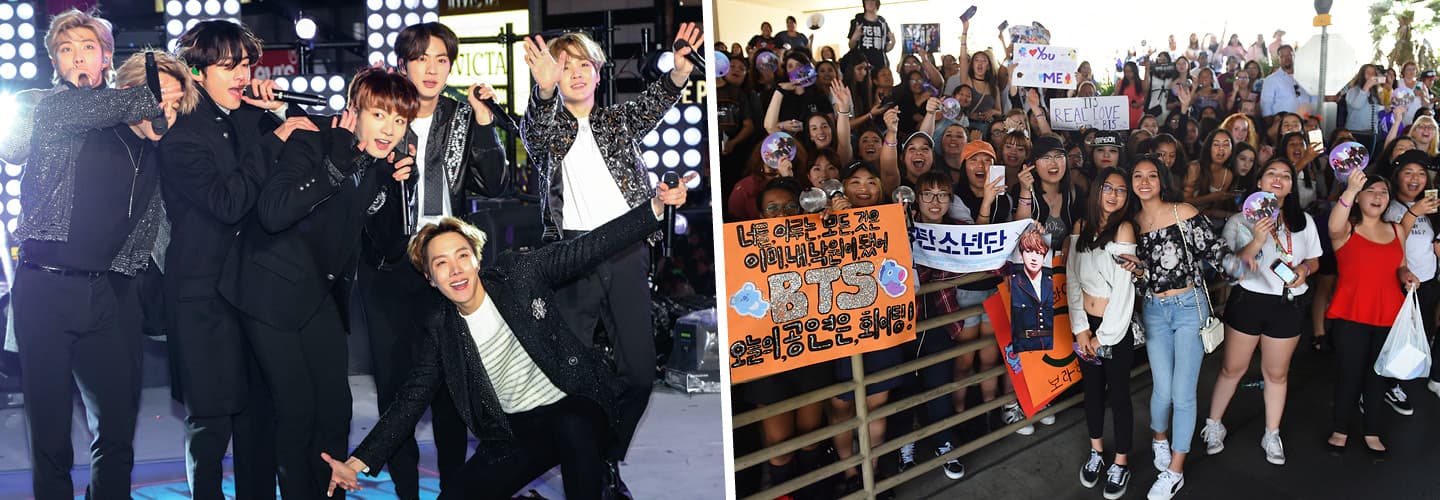One day in September, more than a million people watched a live video streaming from the United Nations in New York City. But they were tuning in not to hear from a head of state but from the South Korean boy band BTS.
The seven members of the pop group—perhaps the biggest band in the world now—gave a speech about Covid-19 and performed their song “Permission to Dance” in the empty U.N. Assembly Hall.
Within a few hours, the video had racked up more than 6 million views.
One day in September, more than a million people watched a live video streaming from the United Nations in New York City. They weren’t tuning in to hear from a head of state. Instead, they were watching the South Korean boy band BTS.
The pop group is perhaps the biggest band in the world now. To kick off the event, its seven members gave a speech about Covid-19. Afterward, they performed their song “Permission to Dance” in the empty U.N. Assembly Hall.
Within a few hours, the video had racked up more than 6 million views.

